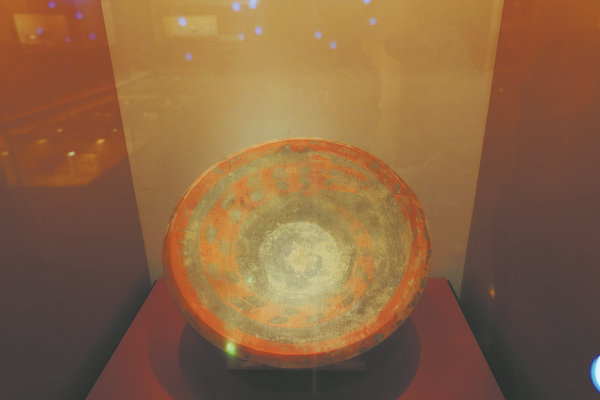

"Now with the discoveries in Taosi, we believe Linfen, of which Taosi is a part, was the hub of Yao's regime." Gao said.
Legends said that Pingyang was the capital of Yao's state. Pingyang is the ancient name of Linfen, where the temple and mausoleum of Yao are located. People have visited the temple and mausoleum to pay homage to this legendary founding father of China for thousands of years but finding material evidence to prove his existence is still a challenge today.
"Now our studies and findings of the Taosi relics proved that Emperor Yao is not just a legend, but a true story," Gao said.
The value of the Taosi relics site in cultural research and tourism has been recognized by many experts and officials in the country.
At the Taosi Site Museum's opening ceremony on Nov 11, Li Qun, vice-minister of culture and tourism and chief of the National Cultural Heritage Administration, delivered a speech, confirming the role of the Taosi site in the research to trace the origin of Chinese civilization.
"The latest archaeological findings and research achievements show that Taosi is the site of a capital city of an ancient state, offering strong material evidence for prehistory studies and proving that Chinese civilization is an inclusive one that features multiple cultures and continuity," Li said.
Zhang Hai, vice-dean of the School of Archaeology and Museology of Peking University, said he is proud of the discoveries at the Taosi site.